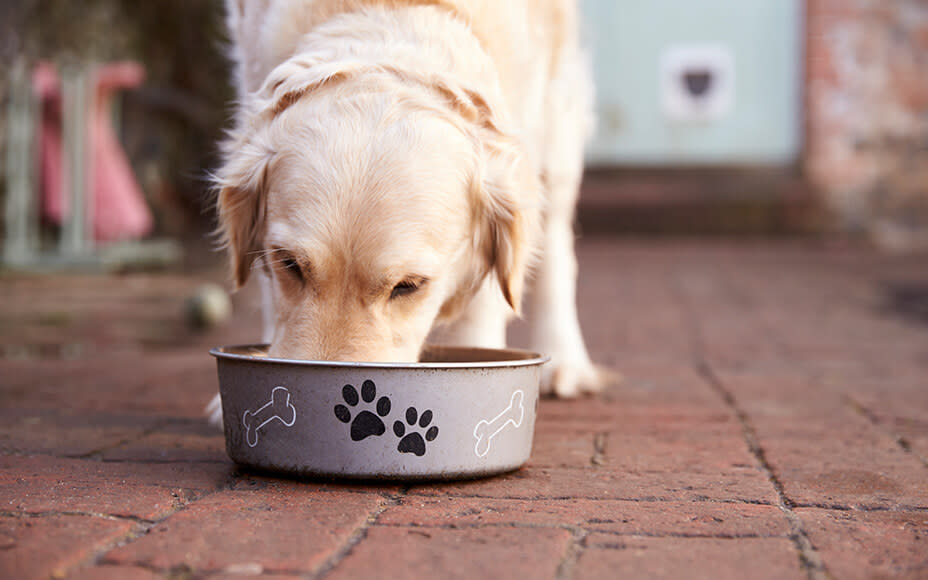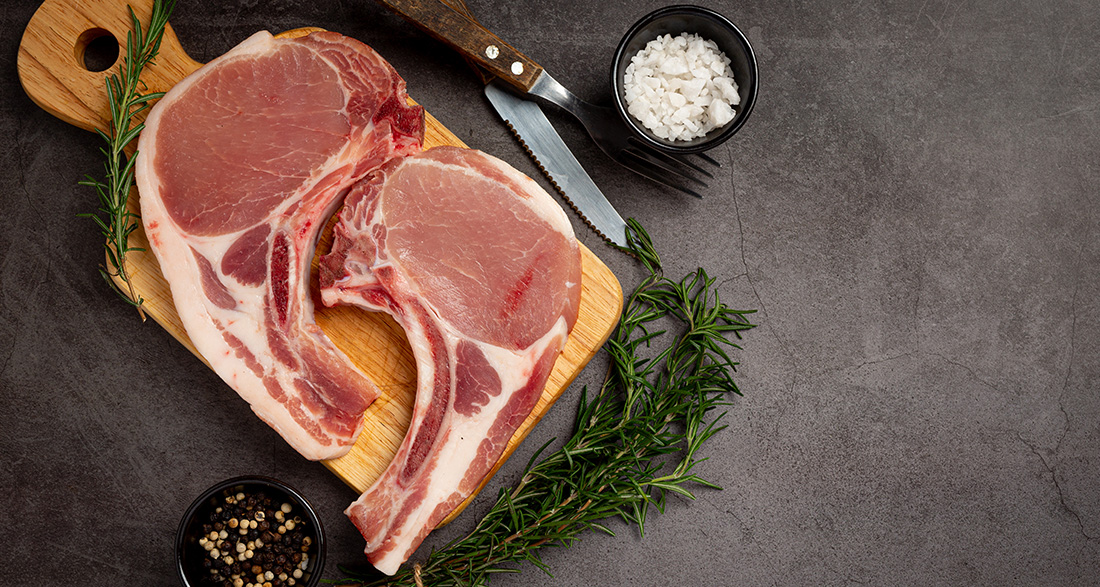Are you wondering if your dog can eat pork and how to feed it to them? Learn more about the topic.
Can my dog eat pork?
Almost every four-legged friend has been drawn to the pleasant aroma of crunchy pig ears in a pet store. They are considered a well-received snack and are enjoyed by most dogs. But what about pork meat itself – and where does the negative reputation come from when it comes to using it in dog food?
In general: Your dog can have pork, and it can digest it just like any other conventional meat. The reason why many people raise concerns about feeding pork to dogs is the raw state of the meat and its health risks.
Caution: Why raw pork is dangerous for dogs
If you’re wondering whether you can feed raw pork to your dog as part of the BARF diet, the answer is always no. Raw pork contains potentially many germs. Pork has a bad reputation mainly because it can potentially transmit the dangerous Aujeszky virus from the herpesvirus group. The consequences include damage to the central nervous system, which typically ends fatally. Because the symptoms are similar to rabies, the disease is also called “pseudo-rabies.” In addition, raw pork can also transmit the E. coli virus, as well as various parasites such as salmonella and the trichinella worms.
Even if the virus has not been found in our pigs for years, wild boars, for example, still carry it more frequently.
But how do I ensure that I’m not exposing my dog to any risks when feeding pork?
How do I feed pork to my dog?
The solution to kill viruses and parasites in the meat is to cook the pork thoroughly. Properly cooked pork poses no threat to your dog and serves as a healthy addition to your furry friend’s diet. Whether it’s in a raw food diet containing pork, as a snack in between, or as a topping on regular food, the choice is yours. However, remember to adjust the feeding amount if your dog regularly consumes pork to ensure optimal daily intake and prevent overfeeding.

If your dog has eaten raw pork, what should you do?
In case your dog snatched a piece of raw pork while cooking, you might worry about the possibility of virus transmission. To reassure you, the Aujeszky virus is relatively rare in the US. The likelihood of your dog getting directly infected by a small piece is low. It’s essential, however, that your dog doesn’t regularly consume raw pork, as this increases the risk of infection.
The type of pork also matters: US domestic pigs pose almost no threat. It’s different with wild boar meat, as they more frequently carry the herpes virus.
Your dog may react with diarrhea, vomiting, and abdominal pain. If his condition changes significantly, promptly visit your trusted veterinarian. Unfortunately, there is no medication that can be given to your dog after consuming raw meat, so patience is key.
Prevention is better than cure: Dispose of leftovers from raw meat processing carefully and ensure that your dog does not have access to the countertop if he is known to snatch a bite.


